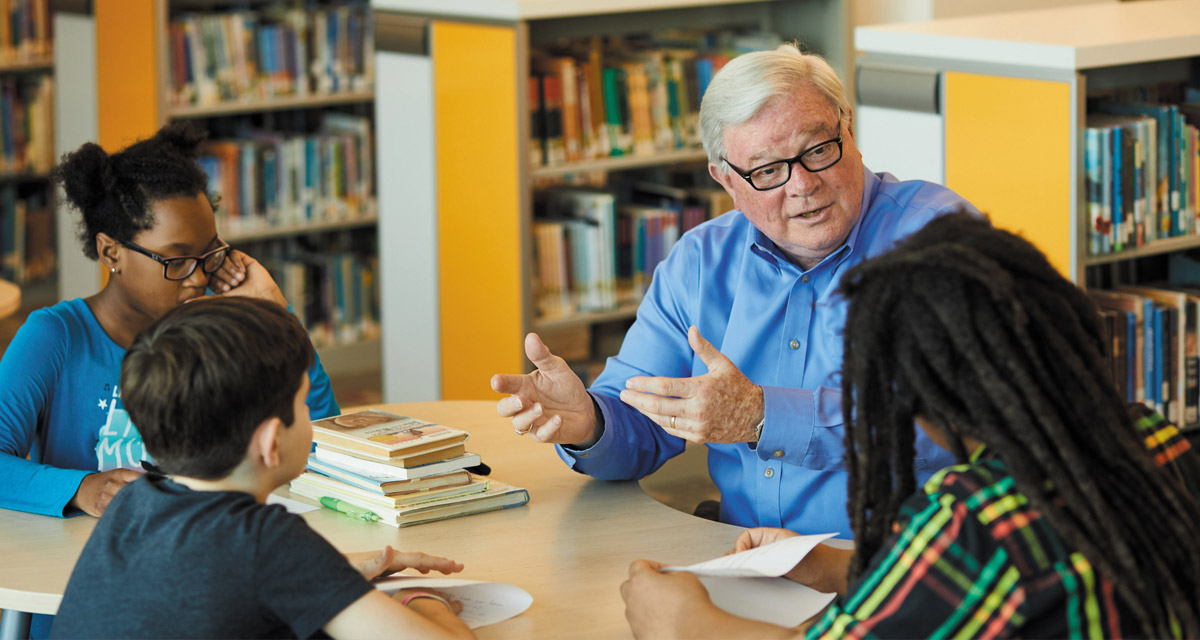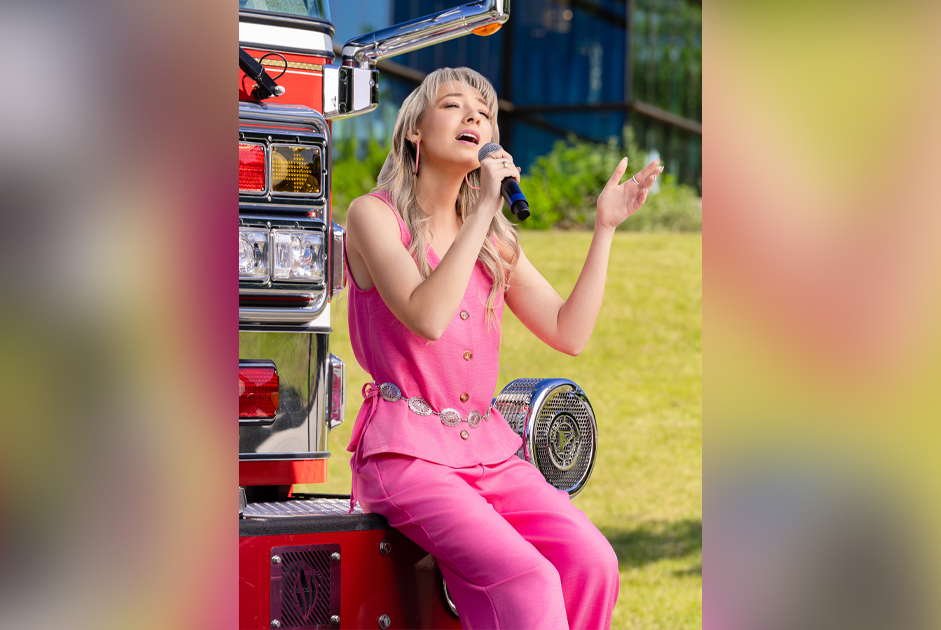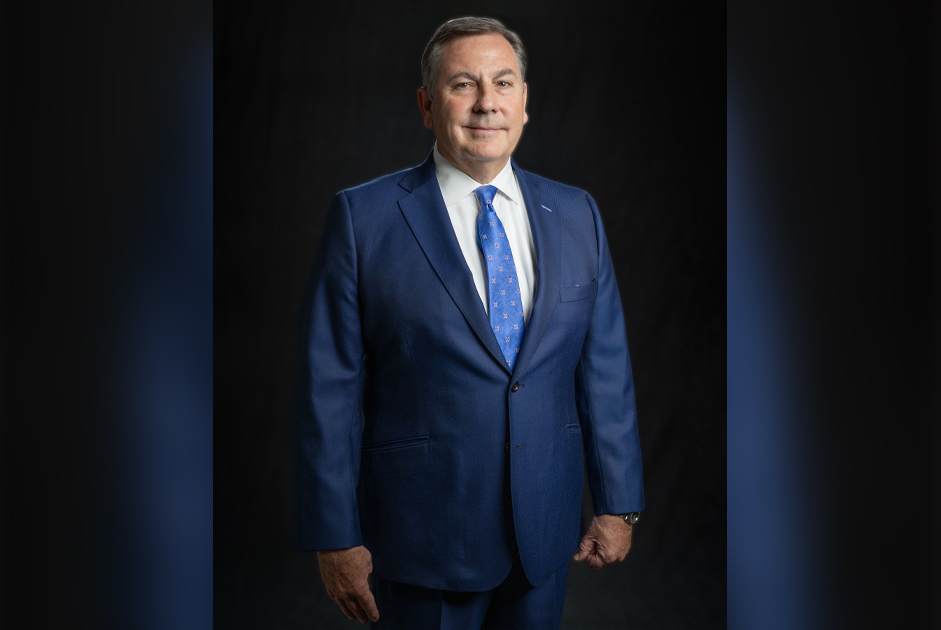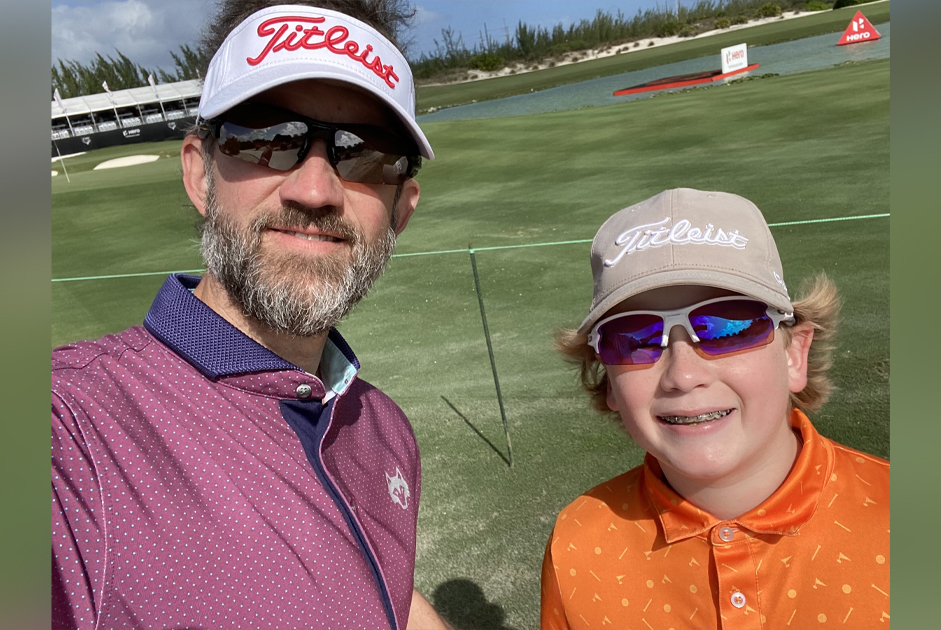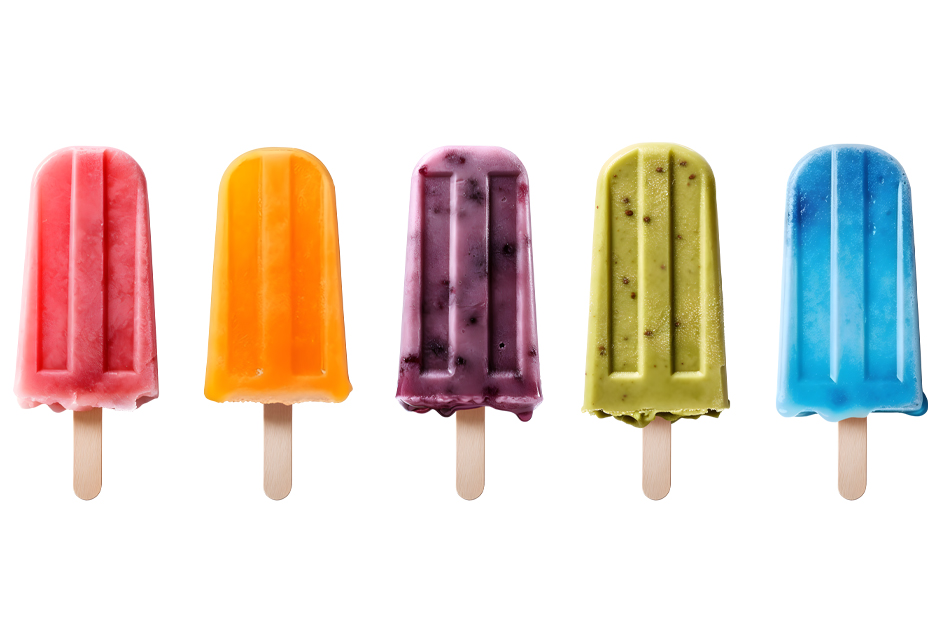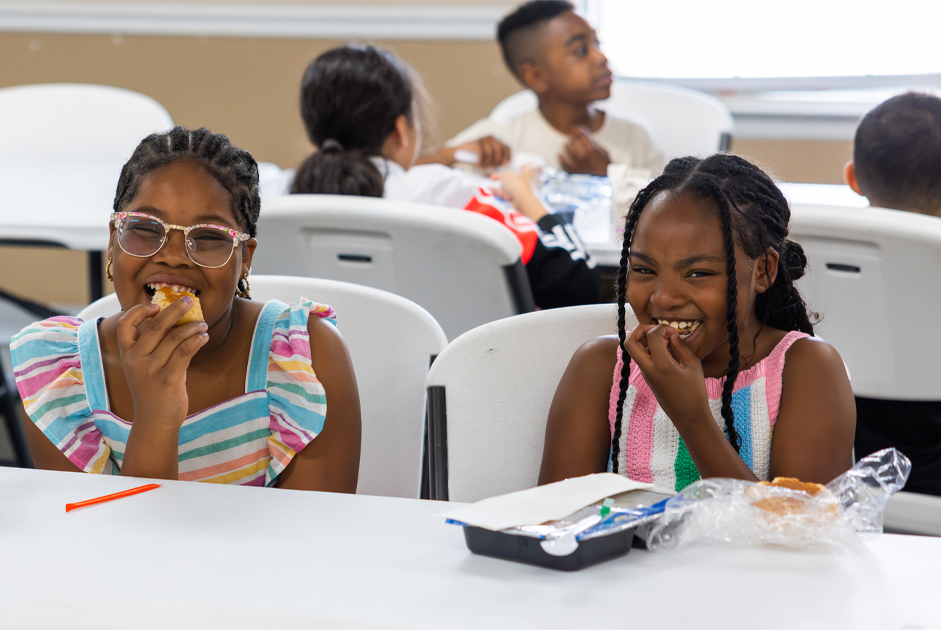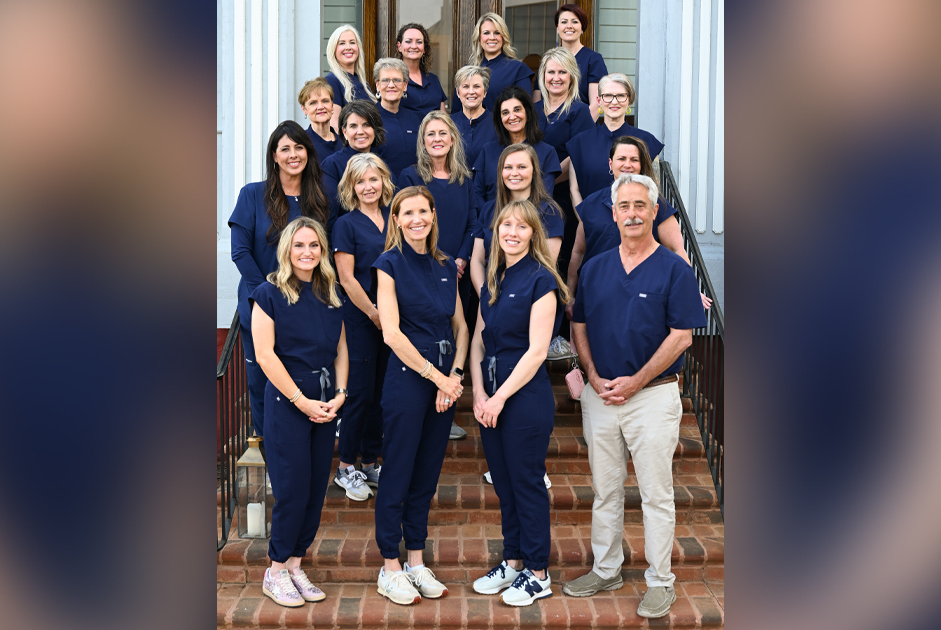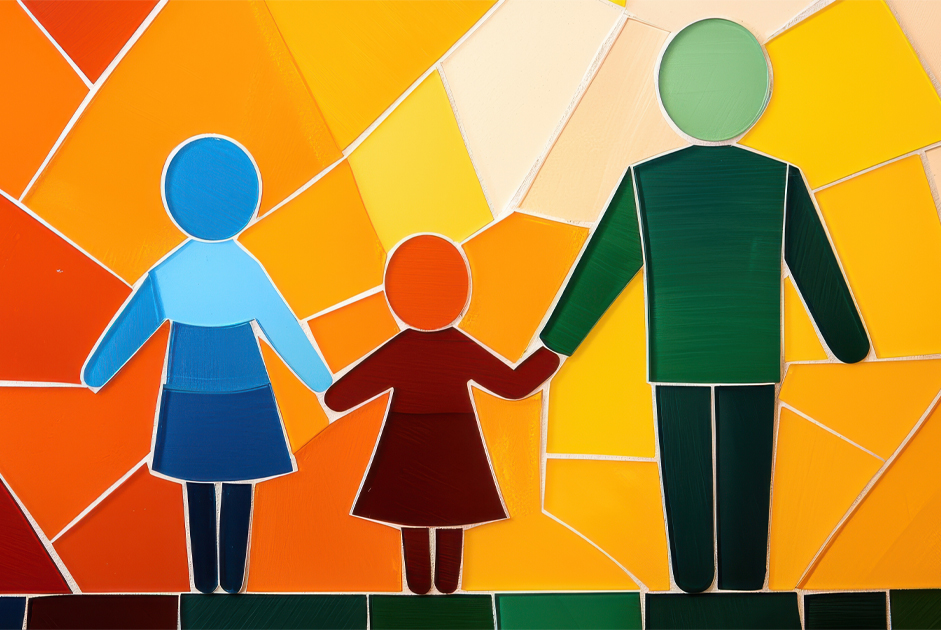BY GWEN FRISBIE-FULTON
Forklifts moving crates of rescued blueberries are beeping in the distance. Volunteers chat while stacking boxes of North Carolina-grown sweet potatoes. A door to the warehouse swings open, and Clyde’s voice can be heard above all else.
“How we doing?” comes his familiar, jovial greeting, imbued with a slight Southern drawl.
Clyde Fitzgerald’s highly successful corporate career took him all around the world, but all roads led him back to the American South. Born in Florida, raised in Georgia, it is the North Carolina Piedmont that Clyde calls home. Here, beautiful rolling hills and fertile land produce great bounty—bounty such as these sweet potatoes and blueberries.
Since its opening 36 years ago, Clyde has worked to share this bounty through Second Harvest Food Bank of Northwest North Carolina. From volunteer to board member to coming out of his first retirement to serve at the helm of the organization for the last ten years, Clyde has been the Food Bank’s biggest champion, calling on each of us to take inventory of our assets, skills, and passions and apply them to the cause of fighting hunger.
Over the years, Clyde has become a leading authority on hunger in Northwest North Carolina, speaking to thousands of audiences, giving hundreds of tours of the Food Bank, speaking on local news stations, radio programs and more. Clyde can tell you about hunger, about food waste, and about the economic woes of local communities. But as he talks, Clyde always returns to one particular story: the young boy who told him that he was hungry because it was not his day to eat.
Every day should be a day for children to eat. It was the plight of local children that called Clyde to Second Harvest. Thus, as his retirement from the Food Bank approaches, we thought it appropriate to allow children to ask him a few questions.
On a sunny Spring afternoon, Clyde met up with some young correspondents—Nadia, Quinn and Auggie—at the local library, pulled up a chair, smiled, and said: “How we doing?”
Here is what they wanted to know:
Nadia: What is a food bank?
Clyde: A food bank gathers a lot of food from a lot of places and gives it to food pantries, soup kitchens, and shelters so they can give it to people who need it.
Quinn: What do you do at the Food Bank?
Clyde: Well, my official title is “Chief Executive Officer.” What that really means is that I get to work with some great people every day. It’s like in sports: there’s a head coach, but there are assistant coaches, because the main coach can’t win a game all by himself.
A: Do you ever get to drive the trucks?
You know, I wish I did! I have a driver’s license to drive my car, but not to drive a big truck like that. The men and women who drive our ten big trucks have a very special license. I get to look at the trucks and sometimes ride in them, but I’m not allowed to drive them.
Quinn: Why is the Food Bank so big?
Clyde: It’s big because a lot of people need our help. We cover 18 counties and that’s a lot of people and a lot of places. We need that kind of big space to handle all the food—to bring it in, to store it safely, to get it back out to the people who need it. We actually have several buildings.
Nadia: Where does all the food come from?
Clyde: Most of the food at Second Harvest is from food drives (which is why I’m always asking people to donate food!) and from our retail grocery store partners. We also have to raise money so we can buy the healthiest food we can. Our Triad Community Kitchen is where students make meals right in our own kitchen for our partners to serve in soup kitchens and at summer meals sites for kids…so we have that food, too.
Auggie: Is Second Harvest the biggest Food Bank in America?
Clyde, laughing: Well, no, we aren’t the biggest one in America, but I think we are the best one! We help over 300,000 people every year and that’s a lot of people. Have you ever been to the Wake Forest football stadium? Think about that stadium being filled 10 times…that’s how many people we serve!
Nadia: Do a lot of kids have to get food from the food bank?
Clyde: Yes, they do. Unfortunately there are a lot of boys and girls who need help with food. In fact, one third of the people we serve are children. We don’t think anyone should be hungry, but especially not a child. We think kids should eat only what is really good for you. Not the snacks, but the healthy proteins, vegetables, fruits, grains and milk. Your parents tell you that, right? We feel the same about the children we serve.
Auggie: I eat in the cafeteria at my school. Do you ever eat at a school?
Clyde: When I was in school—which was a long time ago—I ate at school every day. Your school has free breakfast and lunch, right? [Auggie nods]. I’m very glad that your school does that because children need healthy food for not only on-focus learning, but to play a little, right? It’s not okay for you to have that hungry feeling in your stomach when you are trying to learn.
Nadia: Some of the kids at my school get backpacks with food in them. Is that from the Food Bank?
Clyde: A lot of the backpack programs in schools are ones that Second Harvest works with! We have about 114 backpack programs.
Auggie: Sometimes me and my mom donate food. What happens to it?
Clyde: Thank you for making that food donation—it’s really important. And that’s a very good question. What we do is we bring it to the Food Bank. Then we look at every single box and can and bottle and bag of food to make sure it is safe to eat. We look at the little tiny writing on the package that says “Best if Used By….” Now, it doesn’t mean it’s not safe if it is past that date, but we have all the information to know how much longer it is good—so we check that. If it’s safe to eat, we’ll distribute it.
Nadia: Can the Food Bank feed everyone who is hungry?
Clyde: I wish we could. But we can’t. We try as hard as we can to get food to everyone who needs it, but we know we aren’t reaching everyone.
Nadia: Is there not enough food in North Carolina for everyone to eat?
Clyde: You know, there is enough food, but it’s not always in the right place. I know there is enough food for every man, woman, and child in America, in North Carolina, and in our city. But not everyone has it, because it’s hard for them to afford it in a store—or sometimes it is hard even to get to a store if they don’t have a car or the grocery store is far away from where they live.
Quinn: Do you eat all the food on your plate?
Clyde: I try to! When I was your age, my parents would say: “Clean your plate because children in China are starving.” But I have now come to learn that there are actually children who are hungry who are right here in our community. At Second Harvest, we try to prevent food waste by collecting good food that would otherwise go to the landfill.
Auggie: What exactly is retirement?
Clyde: Well, first of all, you usually have to be old like me, but it’s when you leave a job that you’ve had for a long, long time.
Auggie: Will you miss the Food Bank?
Clyde: I will miss being there every day and I’ll certainly miss the people I’ve been privileged to work with. When you put together great people and an important cause…it’s a happy situation. To know we can be a small part of helping others through a hard time in their life…that is always important. When I leave, I’ll give up a title, but I’ll never give up my passion for feeding people, especially children.
Auggie [pulling out a crumpled up dollar bill]: If I gave you a dollar, would that help?
Clyde: A dollar is a fantastic gift! With this one dollar our food bank can provide 7 meals! A lot of people say: “I sure wish I could help, but I don’t have much to give.” And I always say: “A dollar is very important, because of what our food bank can do with it.” So, yes, it makes a lot of difference for someone in need. It’s always the right time to help someone in need.
Nadia: Do you think by the time we are adults, things will be different?
Clyde: I hope so, Nadia. Y’all can make a great difference in our world and in our State in a lot of ways. I think the three of you and all your friends can make a difference. Hunger is a solvable problem. I think you will say “everyone should eat!” And because I see the three of you want that to happen, I believe that it will happen. I don’t know if I will be around for it, so I am going to thank you for that right now.
Thank you Auggie. Thank you Quinn. Thank you Nadia.

